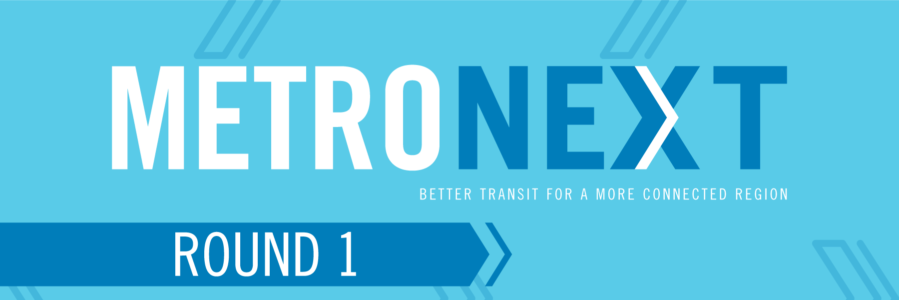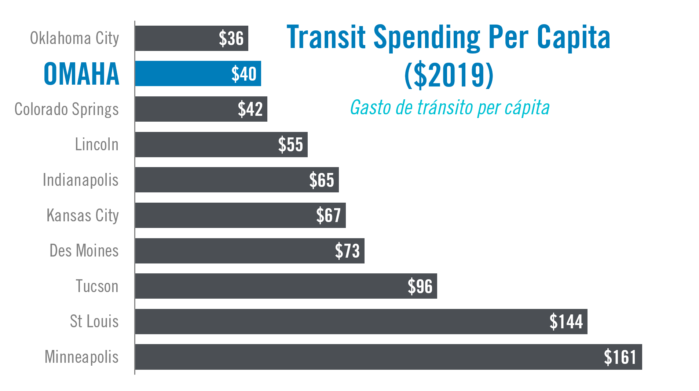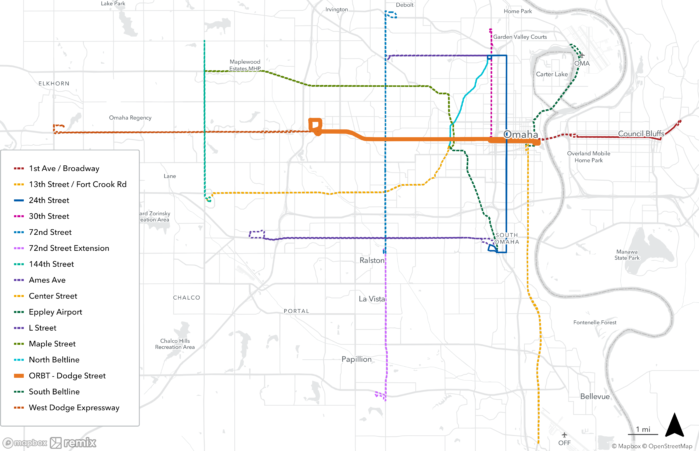MetroNEXT Round 1 kicks off with virtual engagement

April 30, 2021
Here at Metro, we’re planning for what’s next. With long-lasting changes to travel patterns due to the pandemic, the successful launch of our first ORBT line, and a transition of leadership, now is the time to assess our transportation network and prepare for the future with MetroNEXT.
This process consists of four rounds of exploration, and the first round, Understanding the Landscape, is wrapping up. Through virtual meetings and committee updates in late March and early April, Metro presented to more than 200 attendees about the status of transit in our region.
Using a variety of online and in-person feedback methods, we received nearly 600 comments from the community, offering critical feedback that will shape our MetroNEXT efforts.
Overall, we heard a strong desire for more service – more evening and weekend trips, more frequent arrivals on current routes, expanded service to new areas, and requests for new transit options.
A major factor influencing our ability to expand is local funding – our transit spending levels are lower than many peer cities at $40 per capita. MetroNEXT will seek to explore this challenge further and ensure we can meet the transportation needs of our community in the future.

Participants also expressed a strong interest in future ORBT lines. As we transition into Round 2, Framing the Transit Network, staff will evaluate 15 potential ORBT corridors which have been updated based on community feedback from Round 1. Public input resulted in extending the 1st Avenue/Broadway line to Jennie Edmundson Hospital, as well as additional lines on L Street, South 72nd Street to Shadow Lake Towne Center, and 13th Street / Fort Crook Road to Offutt Air Force Base.

These corridors will be evaluated through multiple rounds of screening, with preliminary results available in early June. Through this process, Metro intends to identify two or three potential ORBT lines to be developed through further study. For corridors that don’t advance through the final screening process, Metro will consider alternative solutions to serve the transit needs of those neighborhoods. More information on this process will be available during the feedback period for Round 2 in early June.
After drafting a framework of rapid transit routes in Round 2, we will explore strategies to support additional connections across the region and provide a better experience for riders in Round 3, including bus stop improvements, service to low-density areas, and possible new types of transit. In Round 4 this winter, we’ll consider multiple network scenarios and identify the preferred strategies to guide our agency into the future, with a final MetroNEXT plan released in early 2022.
Visit ometro.com/metronext to stay updated and learn more about this planning and engagement effort. Metro values community input and is happy to present MetroNEXT updates to local businesses, neighborhood groups, and other community organizations by request.
If a group you represent would be interested in hosting a transit discussion, fill out this MetroNEXT meeting request form.

